Many incidents have attracted special public attention, when doctors and nurses were obstructed, insulted or threatened while trying to treat patients. A typical case is the incident at Thanh Ba District Medical Center, Phu Tho, where a team of doctors were treating a child in anaphylactic shock when they were attacked by the patient's family, hindering the treatment process.
This not only causes physical and mental damage to medical staff, but also disrupts and even hinders the emergency process, which is a "race" every second and minute to save lives.
Insiders and perspectives from both sides
Immediately after the unfortunate incidents occurred, Dr. Quan The Dan shared stories from his own family.
One day, his grandmother was involved in a traffic accident and was taken to the hospital by a passerby. Although she was transferred to the central hospital in a conscious state, because no relatives could sign the papers, emergency surgery for a traumatic brain injury could not be performed. When the family found her, she had just passed away, leaving behind an inconsolable grief.
Dr. Quan The Dan shares stories from his family. |
As a doctor who has directly participated in emergency treatment of hundreds of patients, he understands the anguish of standing between the line between professional conscience and procedural and financial constraints.
His sharing is not only a personal confession, but also opens up a true view of the silent difficulties that the medical team is facing every day, where the boundary between life and death depends not only on expertise, but also on paperwork, hospital fees and sympathy from society.
As for Associate Professor, Doctor, Doctor Nguyen Lan Hieu, Director of Hanoi Medical University Hospital, and Director of Binh Duong General Hospital, the story of hospital fees at the two hospitals has different perspectives.
Associate Professor, Doctor, Doctor Nguyen Lan Hieu said: “ Since joining the board of directors of Hanoi Medical University Hospital, we have agreed on the policy that patients without money must also receive emergency care. There are also patients who do not pay, but not many because most patients and their families always respect those who have cured them.”
When he became Director, he also decided to abolish the rule of paying for examinations in advance, allowing patients to go straight to the examination room. Only after receiving a paraclinical indication, would the patient go to the counter to pay the hospital fee in one go. Although there was initially concern that patients would leave after the examination, in reality this rarely happened at the hospital.
However, when he became the concurrent Director of Binh Duong General Hospital, Dr. Nguyen Lan Hieu felt more clearly the pressure from the local health sector. “ The provincial leaders assigned the task: not to let poor patients be abandoned in emergency situations. We carried it out seriously. But in fact, with the main source of income coming from health insurance, this is a big burden because many poor people do not have health insurance cards and do not have relatives,” Dr. Nguyen Lan Hieu said.
In the first 4 months of 2025, Binh Duong General Hospital had 55 cases without relatives, of which 11 cases were successfully treated, the patients were healthy, discharged from the hospital and... did not pay a single hospital fee.
Citing this, Dr. Nguyen Lan Hieu said that statistics from the first 4 months of 2025 at Binh Duong General Hospital showed that there were 55 cases without relatives, of which 11 cases were successfully treated, the patients were healthy, discharged from the hospital and did not pay any hospital fees. The above data is only the statistics for 4 months.
In addition, there are also many patients whose relatives are in difficult family circumstances and cannot pay the hospital fees. In these cases, the hospital's Social Work Department and philanthropists must join hands to support.
The situation of patients “escaping the hospital” still happens frequently. However, no staff has ever had to pay out of their own pocket to make up for the loss. If there is a mistake due to inappropriate attitude, non-compliance with procedures or lack of responsibility, the consequences will range from warnings, deductions of income, job transfers to the highest level of forced dismissal.
Public hospitals are still a support for the poor and disadvantaged. However, in the context of overload, cumbersome procedures, and pressure from financial autonomy, many emergency situations are delayed or misunderstood as "no money, no rescue".
Doctor Nguyen Lan Hieu
According to Dr. Nguyen Lan Hieu, the story of hospital fees is not just about numbers, but also about ethics and dignity of the medical profession. Public hospitals are still a support for the poor and disadvantaged. However, in the context of overload, cumbersome procedures, and pressure from financial autonomy, many emergency situations are delayed or misunderstood as "no money, no treatment". This is more worrying because it leads to incorrect diagnosis and treatment.
Therefore, the core issue is not whether it is free or not, but how to improve the quality and efficiency of the emergency department, where the difference between life and death is only a matter of seconds. Each treatment line and each hospital needs to develop an emergency procedure that is appropriate to the actual resources.
At the same time, the State needs to have a mechanism to "compensate for losses" for emergency resuscitation units, because these important departments cannot be financially autonomous. The loss of revenue due to patients' inability to pay should be covered by the local budget or the hospital itself after auditing. And finally, to make the emergency room a truly safe place, the law must strictly punish acts of violence against medical staff.
Build an “Emergency Fund” for emergency care to ease stress
In fact, the Health Insurance Fund has handled most of the stories related to hospital fees very well, especially for disadvantaged groups.
From the National Children's Hospital, Associate Professor, Doctor, Doctor Ta Anh Tuan shared that all children coming to the hospital are evaluated based on the emergency criteria according to the regulations of the Ministry of Health and the World Health Organization (WHO). If the child is eligible, they will be confirmed as an emergency and hospitalized, and will be covered by health insurance immediately.
In case of missing documents, the hospital can guide the family to supplement, or the doctor can even directly contact the local authorities for support.
Dr. Ta Anh Tuan
In cases where the criteria are not met at the time of admission but then become more serious, the hospital will flexibly update so that the patient can enjoy reasonable health insurance. All emergency children are admitted for treatment regardless of whether or not they have advanced hospital fees, even if they do not have complete documents. Advanced techniques such as ECMO, blood filtration, etc. will still be performed if indicated, and procedures and costs will be supported for later processing. In case of missing documents, the hospital can guide the family to supplement, and the doctor can even directly contact the locality for support.
From many years of experience working in the emergency department, Dr. Nguyen Dang Khiem, Head of the Emergency Department - Friendship Hospital, believes that the most important thing is that medical staff approach patients properly, assess their condition correctly, and know how to communicate with the patient's family members, separating them from the professional work area if they are too agitated.
At the same time, it is necessary to explain clearly to the family members so that they understand the treatment process, especially in situations where patients arrive at the same time with different levels of critical condition. Only then can the doctor focus on his expertise and perform his duties well in a safe environment.
Medical procedures and specialties need to be separated so as not to interfere with the medical examination and treatment process. |
Referring to the story of being denied emergency care due to unpaid hospital fees, which was reported on social media and not being accompanied by relatives, many opinions suggested that a separate fund should be established to pay for emergency care costs, helping medical staff to focus their expertise completely on treatment.
Agreeing with this, Dr. Khiem said: In the immediate future, hospitals should establish a risk fund. This fund can be built from a portion of the hospital's revenue or from charity. Or the State should support costs from the Health Insurance Fund - the part of the fund that covers risk factors to support patients who cannot afford to pay hospital fees or escape from the hospital.
However, according to Dr. Khiem, the solution of hospitals setting up funds is only short-term. In the long term, before exempting hospital fees for all people, the State should issue health insurance cards to all people.
Many suggestions from people in the profession for a humane and safe medical environment. |
“Every citizen is born with an identification number, which is also accompanied by a health insurance number. When every citizen has a health insurance card, they can feel secure when they go for medical examination and treatment, and medical facilities can also feel more secure when the Health Insurance Fund supports payment. This is the measure that I think is the most effective and has the longest lasting effect,” said Dr. Khiem.
"In the past, there were times when I had to pay hospital bills for patients out of my own pocket, but the amount was not much and not too often. I always tell the staff to prioritize emergency care for patients first, procedures later, the patient is the most important. If there are any shortcomings or mistakes, I will take responsibility," Dr. Khiem emphasized.
According to Dr. Quan The Dan, who shared his personal story, from the reality of the tension between professional duties and financial requirements in emergency care, the medical industry needs to form an Emergency Payment Fund.
Accordingly, doctors only focus on saving people in emergency situations, while the payment will be handled by the fund after evaluating the records. Patients can repay according to a suitable schedule or be considered free of charge if they are in difficult circumstances. This fund can be mobilized from the state, insurance, charity sources, etc. Thanks to that, healthcare maintains its humanity, reduces financial pressure and ensures fairness in access to emergency services.
Sharing on social media, some medical staff said that although there is no separate emergency support fund, for patients in difficulty, the Social Work Department will mobilize support from the community. In case a patient is discharged without paying the full hospital fee, the hospital will send someone to contact them to complete the payment. If the fee is not collected, the cost will be deducted from the hospital's financial resources.
Source: https://nhandan.vn/vien-phi-y-duc-va-cach-hanh-xu-phu-hop-post879241.html


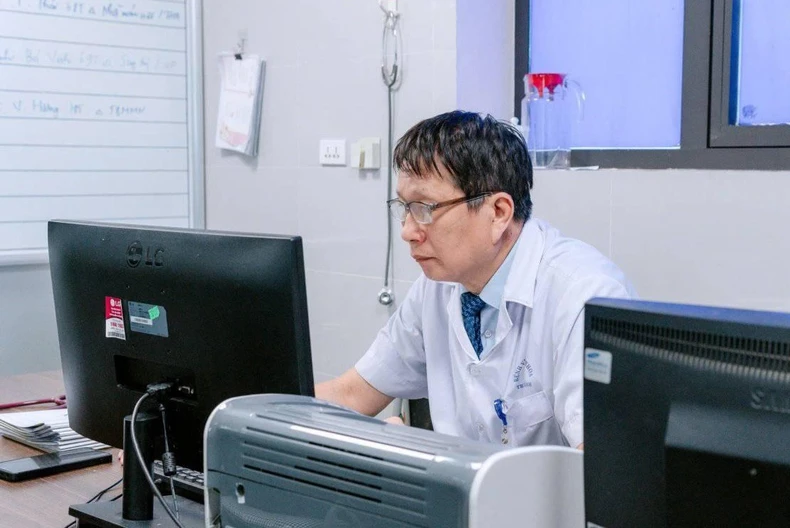
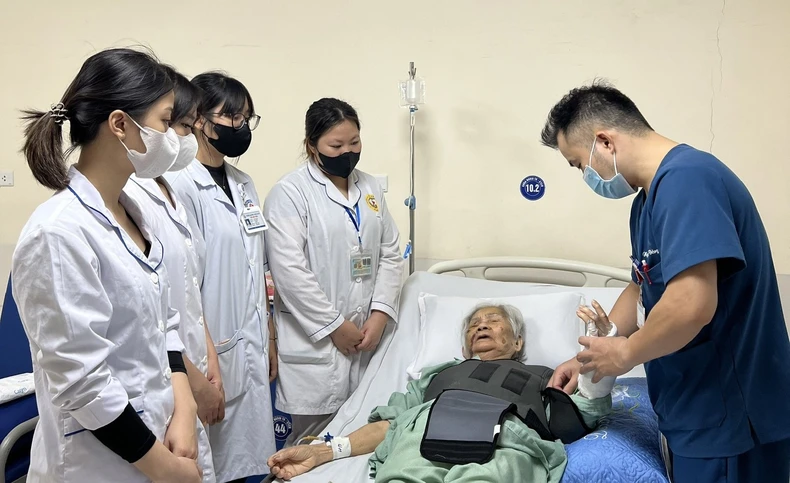
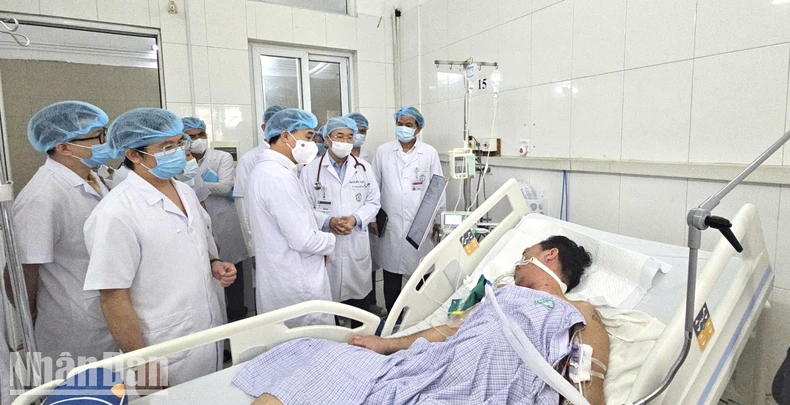
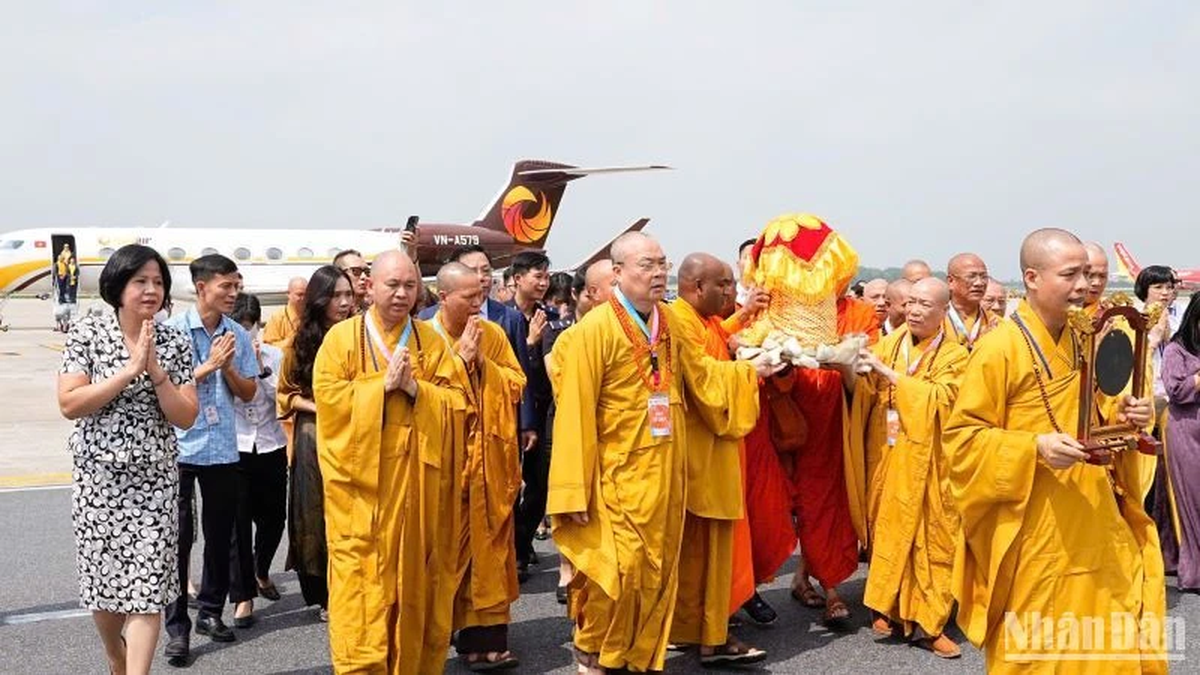
![[Photo] President Luong Cuong awarded the title "Heroic City" to Hai Phong city](https://vphoto.vietnam.vn/thumb/1200x675/vietnam/resource/IMAGE/2025/5/13/d1921aa358994c0f97435a490b3d5065)
![[Photo] Many people in Hanoi welcome Buddha's relics to Quan Su Pagoda](https://vphoto.vietnam.vn/thumb/1200x675/vietnam/resource/IMAGE/2025/5/13/3e93a7303e1d4d98b6a65e64be57e870)
![[Photo] Prime Minister Pham Minh Chinh receives Ambassador of the French Republic to Vietnam Olivier Brochet](https://vphoto.vietnam.vn/thumb/1200x675/vietnam/resource/IMAGE/2025/5/13/f5441496fa4a456abf47c8c747d2fe92)
![[Photo] President Luong Cuong attends the inauguration of the international container port in Hai Phong](https://vphoto.vietnam.vn/thumb/1200x675/vietnam/resource/IMAGE/2025/5/13/9544c01a03e241fdadb6f9708e1c0b65)


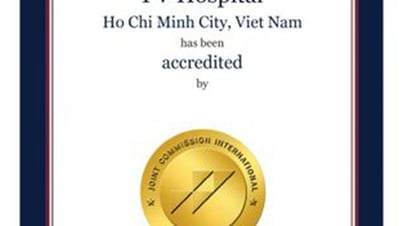









![[Video] Developing Physical Education in Primary Schools in Vietnam](https://vphoto.vietnam.vn/thumb/402x226/vietnam/resource/IMAGE/2025/5/13/781ea31da6c24eaab2162e89e10ddec1)

![[Photo] President Luong Cuong awarded the title "Heroic City" to Hai Phong city](https://vphoto.vietnam.vn/thumb/402x226/vietnam/resource/IMAGE/2025/5/13/d1921aa358994c0f97435a490b3d5065)

![[Photo] Many people in Hanoi welcome Buddha's relics to Quan Su Pagoda](https://vphoto.vietnam.vn/thumb/402x226/vietnam/resource/IMAGE/2025/5/13/3e93a7303e1d4d98b6a65e64be57e870)




















































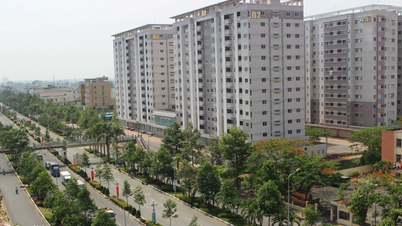


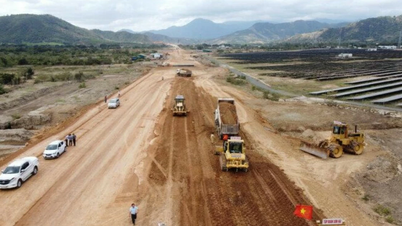











Comment (0)